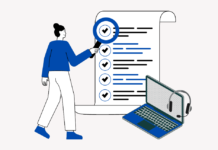In today’s competitive market, ERP systems are no longer a luxury but a necessity for businesses seeking efficiency, integration, and scalability. By combining multiple processes into a unified platform, ERP solutions enable organizations to operate seamlessly, improve productivity, and make data-driven decisions.
This comprehensive guide explores what ERP systems are, their key features, benefits, types, and how they transform the way companies operate.
What is an ERP System?
An Enterprise Resource Planning (ERP) system is an integrated software solution designed to manage and automate core business processes across departments. These may include finance, human resources, supply chain, manufacturing, sales, inventory, and customer service.
ERP systems provide a centralized database, ensuring that all departments access real-time, accurate information to make informed decisions.
Core Features of ERP Systems
1. Centralized Database
ERP solutions store all business data in a single repository, eliminating data silos and ensuring accuracy across departments.
2. Process Automation
Routine tasks such as invoice generation, payroll processing, and inventory tracking are automated, reducing manual errors and saving time.
3. Real-Time Analytics
ERP systems provide advanced reporting and analytics to track KPIs, monitor performance, and forecast trends.
4. Integration Across Functions
They integrate multiple business processes like procurement, order management, and accounting into one cohesive platform.
5. Scalability
Modern ERP systems can grow with your business, adding modules as needs evolve.
Benefits of Implementing ERP Systems
1. Improved Efficiency
Automation and integration reduce redundancies, leading to streamlined operations.
2. Cost Savings
ERP eliminates inefficiencies and improves resource allocation, lowering operational costs.
3. Enhanced Collaboration
Departments share a single source of truth, enabling seamless communication.
4. Better Decision-Making
With real-time data, managers can make quick, informed business decisions.
5. Compliance & Security
ERP systems help businesses comply with regulations by providing secure, auditable records.
Types of ERP Systems
1. On-Premise ERP
Installed locally on a company’s servers, offering complete control but requiring higher upfront investment.
2. Cloud ERP
Hosted on remote servers and accessible via the internet, offering flexibility and lower maintenance costs.
3. Hybrid ERP
A combination of on-premise and cloud features, providing customization with accessibility.
Popular ERP Systems in the Market
- SAP ERP – Known for its powerful integrations and global scalability.
- Oracle NetSuite – A leading cloud ERP solution for growing enterprises.
- Microsoft Dynamics 365 – Combines ERP and CRM capabilities.
- Odoo – An open-source ERP with modular flexibility.
- Infor ERP – Specialized for industry-specific needs.
ERP System Implementation Process
- Needs Assessment – Identify business goals and required modules.
- Vendor Selection – Choose the ERP provider that best fits your needs.
- Data Migration – Transfer existing data into the new system.
- Configuration & Customization – Tailor the system to match business processes.
- Testing & Training – Ensure system functionality and prepare employees for usage.
- Go-Live & Support – Launch the ERP system and maintain ongoing support.
ERP in Business: Real-World Applications
- Manufacturing: Automates production planning, quality control, and inventory tracking.
- Retail: Enhances supply chain management and real-time inventory updates.
- Healthcare: Manages patient records, billing, and compliance tracking.
- Education: Streamlines student enrollment, payroll, and facility management.
ERP System Trends in 2025
- AI and Machine Learning Integration for predictive analytics.
- Mobile ERP for on-the-go business management.
- IoT Integration for smarter supply chains.
- Advanced Cybersecurity to safeguard sensitive data.
Conclusion
An ERP system is more than just software—it’s the backbone of modern business operations. By integrating multiple processes, providing real-time insights, and enhancing collaboration, ERP empowers companies to remain competitive in a fast-paced digital world.















